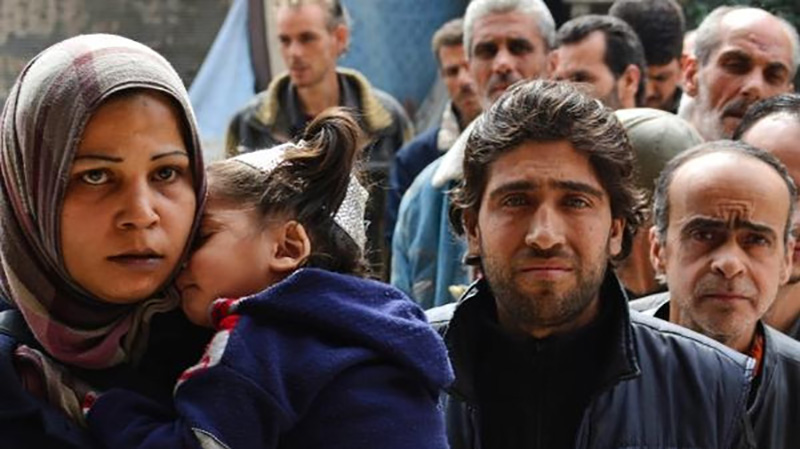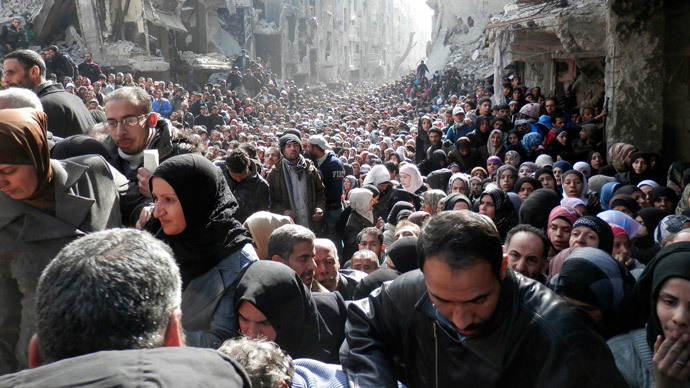
The terror group known as ISIS has been making inroads in Syria, occupying part of a Palestinian refugee camp near Damascus on Thursday. The United Nations has expressed concern that a "potential massacre" could take place there.
According to Noah Rayman of Time, ISIS has occupied roughly half of the Yarmouk camp, which is home to about 18,000 people. Chris Gunness, a spokesman for the United Nations Relief and Works Agency, hinted of a possible "slaughter" there.
"Today, this hour, we are looking at nothing short of the potential massacre of the innocents," Gunness said. "We have called for a cease-fire."
Gunness added that the U.N. has "called for humanitarian access so that people can have aid administered to them where they are." U.N. Secretary-General Ban Ki Moon warned on Thursday that Yarmouk "is beginning to resemble a death camp."
According to Martin Chulov and Kareem Shaheen of the Guardian, Yarmouk refugee camp was used as a showpiece of Syrian support for the Palestinian cause. Now its residents find themselves in a difficult situation thanks to fighting between President Bashar al-Assad's government and ISIS militants.
"Most of the 200,000 or so Palestinians who lived in Yarmouk until late 2012 are now second-time refugees, either elsewhere in Syria, across the border in Lebanon or in Jordan," Chulov and Shaheen wrote.

The Guardian reported that according to a Western diplomat based in Beirut, both sides have tried to proclaim themselves as "liberators" of the Palestinian people. That's because until recently, the Syrian government has denied the Palestinians safe refuge for more than two years.
"They are now casting themselves as saviors of the Palestinians after besieging them for all that time," the diplomat said in describing Assad's regime. "They want to be seen as liberators, not persecutors, and this cause has worked very well for them in the past."
Camp insiders told the Guardian that most of the 600 ISIS fighters in Yarmouk were local men who previously aligned with other opposition groups. Some of the fighters were even smuggled in by Jabhat al-Nusra, a group aligned with al-Qaida that opposes ISIS in northern Syria.
"They mostly had a bad reputation and were known for thievery," an activist said in describing the ISIS militants now occupying parts of Yarmouk.
The activist, who fled to the camp's outskirts, told the Guardian that ISIS came back "to take revenge from the civilians who evicted them."
"People were unable to stand up to them because of their savagery and the fact they were well armed with medium and light weapons," the activist said.
Gunness warned that the situation could get much worse soon. According to the Guardian, the UNWRA has described the developments as an atrocity.
"The violence that began in Yarmouk on 9 April is not just continuing, it has intensified," Gunness said. "Yarmouk is at the lower reaches of hell. It must not be allowed to descend further."

















